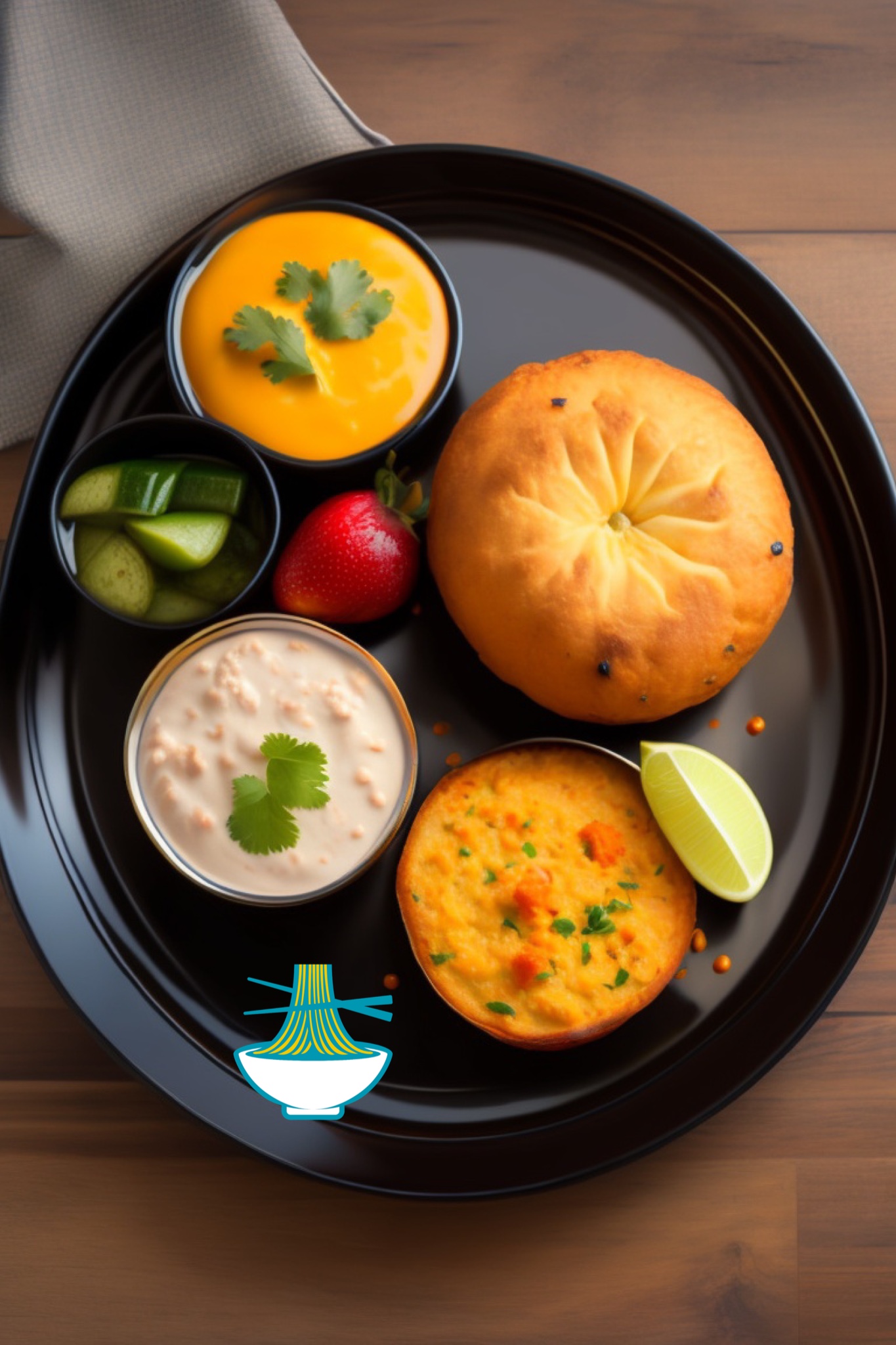Medhu Vada, also known as Ulundu Vada or Urad Dal Vada, is a beloved South Indian snack that has been enjoyed for centuries. These crispy, doughnut-shaped lentil fritters are made from urad dal (black gram), seasoned with aromatic spices, and deep-fried to perfection. Typically served with coconut chutney and sambar, Medhu Vada is a popular breakfast item, street food, and festive delicacy across South India.
This dish has its origins in Tamil Nadu and is widely consumed across South Indian states, such as Karnataka, Andhra Pradesh, and Kerala. It is especially popular during festivals and celebrations. The unique combination of crispy exterior and soft, fluffy interior makes Medhu Vada a satisfying snack that can be enjoyed at any time of the day.
Ingredients:
- 1 cup urad dal (black gram)
- 1 small onion, finely chopped
- 2 green chilies, chopped
- 1 tablespoon curry leaves, chopped
- Salt to taste
- Oil for deep-frying
- Water as needed
Instructions:
1. Soak the Dal: Soak 1 cup of urad dal in water for 3-4 hours.
2. Prepare the Batter: Drain the water and grind the dal into a smooth batter using a food processor. Add small amounts of water as needed to achieve the right consistency.
3. Add Seasonings: Mix the batter with chopped onions, green chilies, curry leaves, and salt.
4. Shape the Vadas: Wet your hands with water and take a small portion of batter. Shape it into a round disc with a hole in the center.
5. Deep-Fry: Heat oil in a deep pan or kadhai. Fry the vadas in hot oil until they turn golden brown, flipping once to cook evenly on both sides.
6. Drain & Serve: Remove the vadas and drain excess oil using paper towels. Serve hot with coconut chutney or sambar.
Notes:
- Ensure the urad dal is soaked long enough for a soft, fluffy batter.
- Frying at the right temperature is key to achieving a crispy exterior without absorbing excess oil.
Nutrition Value:
1. 1 cup urad dal (black gram)
- Calories: 340
- Carbohydrates: 60g
- Protein: 25g
- Fat: 1g
- Sodium: 5mg
- Cholesterol: 0mg
- Vitamins: Rich in B vitamins (especially folate)
- Minerals: Iron, magnesium, potassium, calcium
- Nutritional benefit: Urad dal is a great source of plant-based protein and fiber. It helps in muscle repair, boosts energy, and supports digestion due to its high fiber content. The iron content aids in combating anemia.
2. 1 small onion, finely chopped
- Calories: 40
- Carbohydrates: 9g
- Protein: 1g
- Fat: 0.1g
- Sodium: 3mg
- Cholesterol: 0mg
- Vitamins: Vitamin C, Vitamin B6
- Minerals: Potassium, manganese
- Nutritional benefit: Onions are low in calories but packed with antioxidants, especially quercetin, which can help reduce inflammation. They also support heart health and may improve immune function.
3. 2 green chilies, chopped
- Calories: 10
- Carbohydrates: 2g
- Protein: 0.4g
- Fat: 0.1g
- Sodium: 1mg
- Cholesterol: 0mg
- Vitamins: Vitamin C, Vitamin A
- Minerals: Potassium
- Nutritional benefit: Green chilies are rich in vitamins and antioxidants. They can boost metabolism, improve digestion, and provide anti-inflammatory properties due to capsaicin.
4. 1 tablespoon curry leaves, chopped
- Calories: 4
- Carbohydrates: 0.7g
- Protein: 0.1g
- Fat: 0.1g
- Sodium: 1mg
- Cholesterol: 0mg
- Vitamins: Vitamin A, Vitamin C
- Minerals: Calcium, iron, phosphorus
- Nutritional benefit: Curry leaves are known for their antioxidant properties, which can help with digestion, improve eyesight, and promote heart health. They are also known to support hair growth and skin health.
5. Salt to taste
- Calories: 0
- Carbohydrates: 0g
- Protein: 0g
- Fat: 0g
- Sodium: Varies based on amount
- Cholesterol: 0mg
- Vitamins: None
- Minerals: Sodium
- Nutritional benefit: Salt is essential for balancing fluids in the body and aiding muscle function. However, excessive salt intake can lead to high blood pressure, so it should be consumed in moderation.
6. Oil for deep-frying
- Calories: Varies based on the amount absorbed, roughly 120 calories per tablespoon
- Carbohydrates: 0g
- Protein: 0g
- Fat: 14g (mostly unsaturated)
- Sodium: 0mg
- Cholesterol: 0mg
- Vitamins: None
- Minerals: None
- Nutritional benefit: The type of oil used for frying can influence health outcomes. Unsaturated fats (like those found in vegetable oils) are better for heart health, but excessive frying can lead to high calorie intake.
7. Water as needed
- Calories: 0
- Carbohydrates: 0g
- Protein: 0g
- Fat: 0g
- Sodium: 0mg
- Cholesterol: 0mg
- Vitamins: None
- Minerals: None
- Nutritional benefit: Water is essential for hydration, aids digestion, and supports overall bodily functions. It has no caloric value but plays a vital role in maintaining body temperature and removing toxins.





Comments